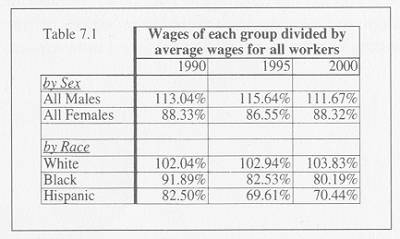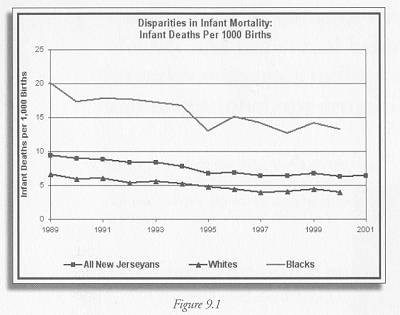Category: Goal 2. Equity
Why do we care? We want to live in an equitable society, where people are paid based on their...
8. Legislature’s Reflection of the Composition of the Population
Why do we care? A sustainable society is one in which everyone participates in public decisionmaking by electing people...
9. Racial Disparities in Infant Mortality
Why do we care? High infant mortality rates are a sign that pregnant women and newborns are not receiving...


